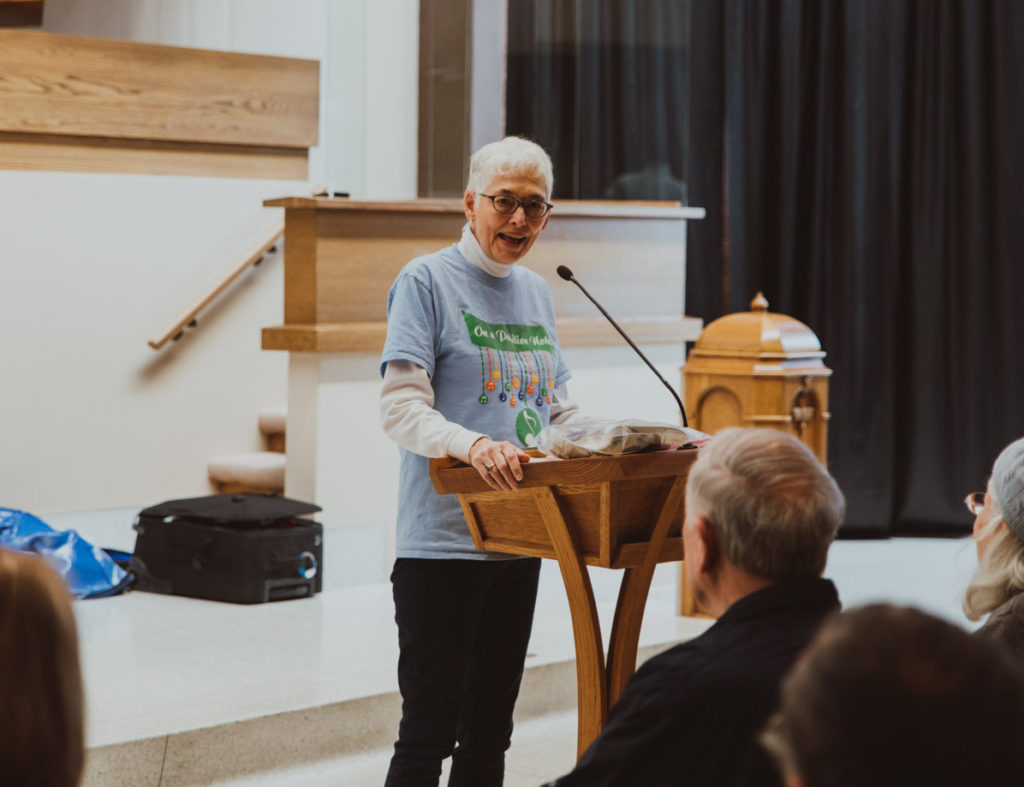People sometimes ask how we came up with the name for Fox Valley Memory Project. It actually happened rather quickly in the process of discussing who we would serve and what we would do.
Dr. Lee Vogel, Beth Belmore, Margie Rankin and I met regularly starting in December, 2010, and a year later, things were moving quickly toward obtaining funding to launch this new organization. Now we needed a name!
We had already decided to focus our efforts on the Fox Valley region, largely because our major funder was the Community Foundation for the Fox Valley Region. At a meeting on January 6, 2012, we rather casually suggested that we were working on a “memory project.” I jotted that down on a piece of notebook paper where I noted someone said we needed a “punchy name.” We’d already decided that one of the first things we wanted to do was to establish several memory cafés so the word “memory” was on our minds.
By our next meeting two weeks later, we had started to call this exciting new initiative the Fox Valley Memory Project. Because we had so many other details to work out, we embraced that name and continued our planning.
In the early days, when our first office was located at the old Thompson Community Center, we had a room we called the “Memory Loss Resource Center” where we had books and films to loan, and where we held small educational and social programs. One of my favorite programs involved a group a men who painted birdhouses they sold to raise funds to support the organization. I still have a birdhouse decorated with Green Bay Packers colors!
A few years after our founding, we formed a study group to examine whether we should change the name of the organization. We got input from many people and concluded that it made the most sense to keep our name: Fox Valley Memory Project, or, as we often write, FVMP.
Now, Fox Valley Memory Project is known and respected by throughout the country and even in outside the USA. However, it is important to continue to think carefully about the language used to describe the experiences of people who participate in our programs and services.
For example, “memory loss” doesn’t accurately reflect the challenges of everyone with symptoms of dementia. Some initially have trouble with language; others have various physical movement problems; still others begin to respond to situations with emotions they never previously expressed. In other words, the general term “dementia” is not just about memory loss. Because of this, some organizations are starting to describe their participants as coping with “memory and/or cognitive challenges.”
The word “dementia” evokes considerable stigma in our society and some predict it will no longer be used (at least not in medical contexts) by 2030. The term “neurocognitive disorder” is appearing more often as people hear their doctors give diagnoses such as “mild (or major) neurocognitive disorder of the Alzheimer type.”
In addition, some geriatricians are noting that there are probably many Alzheimer’s diseases that differ in clinical expression and neuropathology. By 2030, we may be adding that letter “s” more often when we talk about Alzheimer’s. Researchers throughout the world are confirming the old saying, ”When you’ve met one person with Alzheimer’s disease, you’ve met one person with one type of Alzheimer’s disease.”
Language about the conditions of our bodies and our minds changes over time and across cultures. We need to pay attention to the evolving, dynamic nature of how we name the conditions we live with. It is even more important to remember that regardless of what we call these conditions, we need to find creative ways for all of us to live well together with meaning and with joy. Fox Valley Memory Project will always be committed to that goal.

Leave a Reply